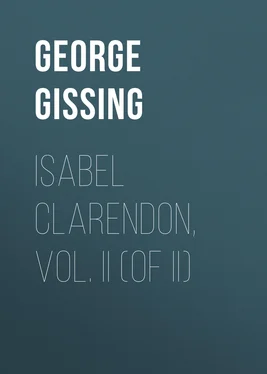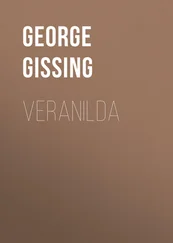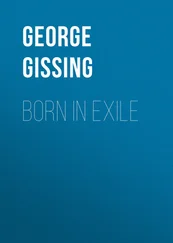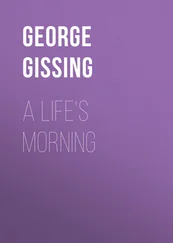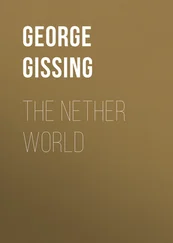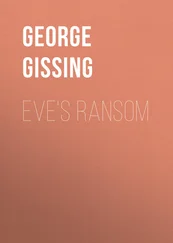George Gissing - Isabel Clarendon, Vol. II (of II)
Здесь есть возможность читать онлайн «George Gissing - Isabel Clarendon, Vol. II (of II)» — ознакомительный отрывок электронной книги совершенно бесплатно, а после прочтения отрывка купить полную версию. В некоторых случаях можно слушать аудио, скачать через торрент в формате fb2 и присутствует краткое содержание. Жанр: foreign_prose, literature_19, foreign_antique, на английском языке. Описание произведения, (предисловие) а так же отзывы посетителей доступны на портале библиотеки ЛибКат.
- Название:Isabel Clarendon, Vol. II (of II)
- Автор:
- Жанр:
- Год:неизвестен
- ISBN:нет данных
- Рейтинг книги:3 / 5. Голосов: 1
-
Избранное:Добавить в избранное
- Отзывы:
-
Ваша оценка:
- 60
- 1
- 2
- 3
- 4
- 5
Isabel Clarendon, Vol. II (of II): краткое содержание, описание и аннотация
Предлагаем к чтению аннотацию, описание, краткое содержание или предисловие (зависит от того, что написал сам автор книги «Isabel Clarendon, Vol. II (of II)»). Если вы не нашли необходимую информацию о книге — напишите в комментариях, мы постараемся отыскать её.
Isabel Clarendon, Vol. II (of II) — читать онлайн ознакомительный отрывок
Ниже представлен текст книги, разбитый по страницам. Система сохранения места последней прочитанной страницы, позволяет с удобством читать онлайн бесплатно книгу «Isabel Clarendon, Vol. II (of II)», без необходимости каждый раз заново искать на чём Вы остановились. Поставьте закладку, и сможете в любой момент перейти на страницу, на которой закончили чтение.
Интервал:
Закладка:
She was alone in Mrs. Stratton’s boudoir next morning, when the door was pushed open; turning, she saw her cousin.
“I was told that I might come here in search of you,” said Robert, with his genial smile. “How do you do?”
“Very well, thank you. How are you?—as the children answer. But I needn’t ask that; you have a wonderful faculty for looking healthy.”
“I don’t think there’s often much amiss with me. Setting aside the chance of breaking my neck over a fence, I think I may promise myself a few more years.”
“And the risk of fences you are wise enough to avoid.”
“Nothing of the kind. I was hunting in Leicestershire only yesterday.”
“Impossible, Robert!”
“Indisputable fact–” He had it on his lips to call her “Isabel,” but for some reason checked himself. “A friend of mine took me down and mounted me. I enjoyed it thoroughly.”
“But you are becoming an Englishman.”
“Was I ever anything else?”
“I believe I generally think of you in an Oriental light. At all events, you smoke a hookah, and very much prefer lying on a rug to sitting on a chair.”
“The hookah I have abandoned; the rug comes of your imagination.”
“Oh dear no; it was one of the first things you said to me when you came to see me last spring in town. It stamped you in my mind for ever.”
They laughed.
“But I want to know how you are?” Robert resumed, leaning to her, with his hands on his knees. “Mrs. Stratton’s account is too vaguely ladylike. How, in truth, are you?”
A ripple of laughter replied to him.
“You show me that you can be mirthful; that is much, no doubt. But you must have a change.”
“Am I not having one?”
“Oh, I don’t call this a change. You must get fresh air.”
Asquith’s way of speaking with her was not quite what it had formerly been. He assumed more of—was it cousinship?—than he had done, Possibly the man himself had undergone certain changes during the last few months. Oriental he had been to a certain extent; something of over-leisureliness had marked his bearing; there had been an aloofness in his way of remarking upon things and people, a kind of mild fatalism in his modes of speech. An English autumn with its moor-sport and the life of country houses; an English winter with growth of acquaintances at hospitable firesides had doubtless not been without their modifying influence; but other reasons were also discoverable for the change in his manner towards Isabel. For one thing, he had heard of her refusal of Lord Winterset; for another, he knew of Ada’s approaching marriage.
She made no reply to his advice, and he continued.
“You know Henry Calder?”
“Well.”
“You know that he has been absolutely ruined by a bank failure?”
“You don’t say so?”
“Indeed. The poor fellow is in a wretched state—utterly broken down; they feared a few weeks ago that he was going crazy. You know that he was great at yachting; of course he has had to sell his yacht, and I have bought it.”
“What will you tell me next?”
“Why, this. It is essential that poor Calder should get away to the South, and nothing would do him half as much good as a sail among the islands. Now I propose to ask him to accompany me on such a cruise, say at the beginning of next month. He and I have been on the best of terms since we were lads, and there’s no kind of awkwardness in the arrangement; he goes to put me up to the art of seamanship. Of course his wife accompanies him, and probably their eldest girl.”
“That’s the kindest thing I have heard for a long time, Robert,” said Isabel, giving him a look of admiration.
“Oh dear no; nothing could be simpler. And now—I want you to come with them.” Isabel shook her head.
“But what is your objection?”
“I cannot leave England at present.”
“I don’t ask you to. We are at the middle of January; it will be time enough in three weeks.”
“Out of the question.”
She still shook her head, smiling. Robert reflected for a moment.
“When does this marriage take place?” he asked abruptly.
“Very shortly, I suppose. I have written to Mr. Lacour to request him to make arrangements as soon as he likes. I shall meet him in London on Monday.”
“Good. Then you are absolutely free.”
“I am not free.”
He glanced at her inquiringly.
“I am not free,” Isabel repeated, looking straight before her.
“I suppose I shall be grossly impertinent if I ask what it is that holds you?”
“I cannot now tell you, Robert, but—I must remain in England.”
Her voice had a tremor in it, which she did her best to subdue. She was smiling still, but in a forced, self-conscious way.
Asquith leaned back; he had lost his look of cheerful confidence.
“But it isn’t such a grave matter, after all,” said Isabel, restoring the former tone. “It was a very kind thought of yours, very kind—but you won’t quarrel with me because I can’t come? It will make no difference in your plan for the Calders, surely?”
“I can’t say, I’m sure,” Asquith replied, in an almost petulant manner, strangely at variance with his ordinary tone. He had thrust his hands into his pockets, and was tapping the carpet with his foot.
“What nonsense!” Isabel exclaimed, with growing good humour. “As if you would allow such a scheme to be overthrown just because one of the party failed you! I can suggest half a dozen delightful people who will be happy to go with you.”
“No doubt; but I wanted you.”
“Robert, you are undeniably Oriental; the despotic habit still clings to you. If one swallow doesn’t make a summer, neither does one day’s hunting make an Englishman.”
His countenance cleared.
“Well,” he said, “this is certainly not final. Let us wait till that wedding is over.”
“It is final,” she returned, very positively. “The wedding will not in the least alter things.”
“What then are you going to do?” he asked, with deliberation, gazing at her steadily.
Her eyes fell, and she seemed half to resent his persistence, as she answered:
“I am going to live on three hundred a year.”
“H’m! Do you think of living in London?”
“No; I do not think of living in London. Proceed, sir, with the cross-examination.”
“I think I have been rude enough for one day,” he returned, with a quiet smile as he rose from his chair.
She held her hand to him with the friendly grace which could repay even when it disappointed.
“Thank you, with all my heart,” she said. “Only—remember how dear independence must be to me.”
“Are you acquainted with Mr. Lyster?” Robert asked, with a transition to easier topics.
“I don’t think I know any one of that name.”
“Some one who arrived here a few minutes after I did. It seems we came in the same train.”
“To be sure; a friend the Strattons were expecting. Shall we go to the drawingroom?”
There they found the gentleman in question conversing with Mrs. Stratton, a man of smooth appearance and fluent speech. His forte seemed to be politics, on which subject he discoursed continuously during luncheon. There happened to be diplomatic difficulties with Russia, and Mr. Lyster—much concerned, by-the-bye, with Indian commerce—was emphatic in denunciation of Slavonic craft and treachery, himself taking the stand-point of disinterested honesty, of principle in politics.
“We shall have to give those fellows a licking yet,” remarked Colonel Stratton, with confidence inspired by professional feeling.
“I should think so, indeed!” put in Frank Stratton, the eldest son. The two schoolboys had by this time returned to their football, and only the representatives of Woolwich and Sandhurst remained to grace the family table. “And the sooner the better.”
Читать дальшеИнтервал:
Закладка:
Похожие книги на «Isabel Clarendon, Vol. II (of II)»
Представляем Вашему вниманию похожие книги на «Isabel Clarendon, Vol. II (of II)» списком для выбора. Мы отобрали схожую по названию и смыслу литературу в надежде предоставить читателям больше вариантов отыскать новые, интересные, ещё непрочитанные произведения.
Обсуждение, отзывы о книге «Isabel Clarendon, Vol. II (of II)» и просто собственные мнения читателей. Оставьте ваши комментарии, напишите, что Вы думаете о произведении, его смысле или главных героях. Укажите что конкретно понравилось, а что нет, и почему Вы так считаете.
